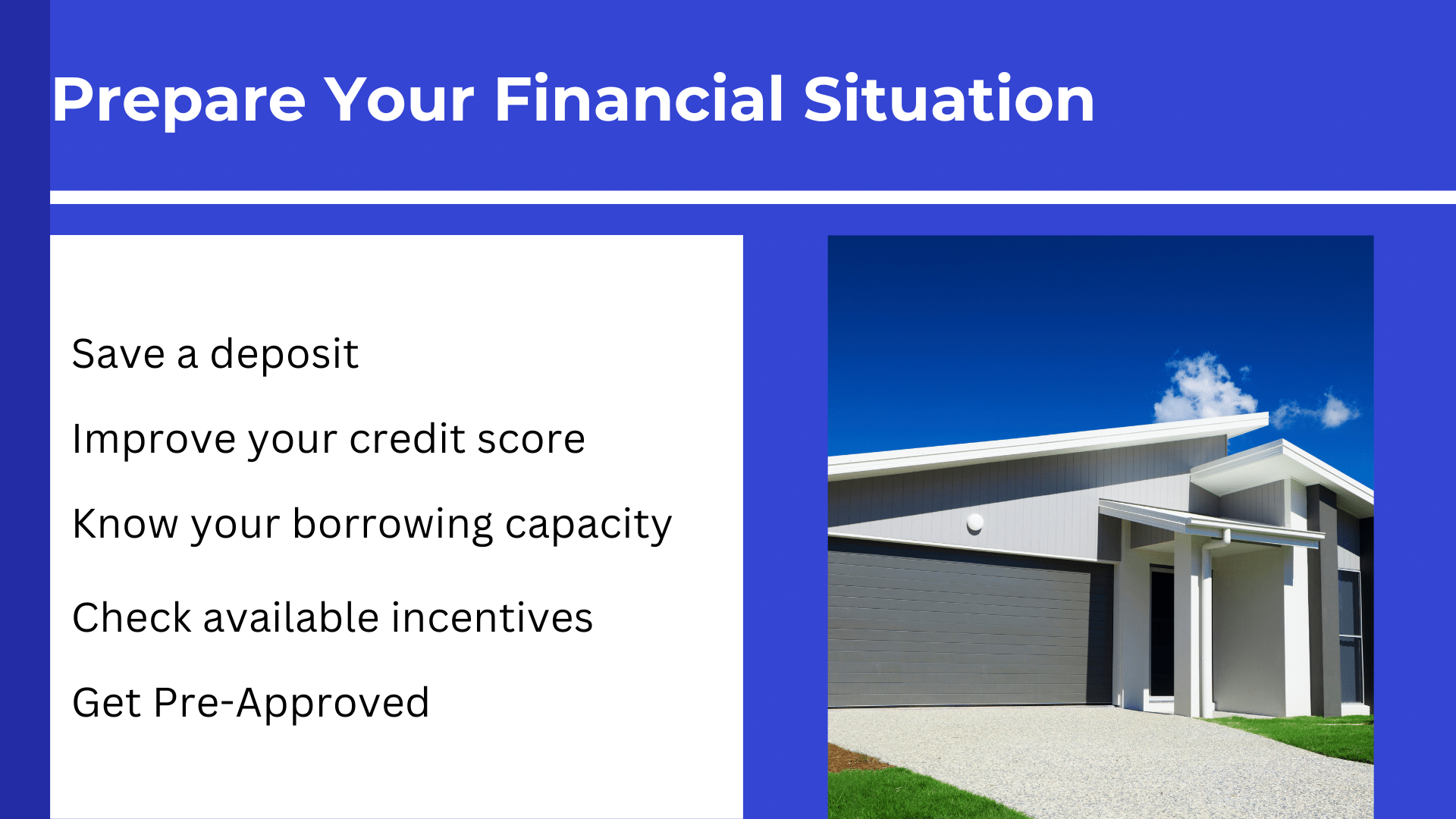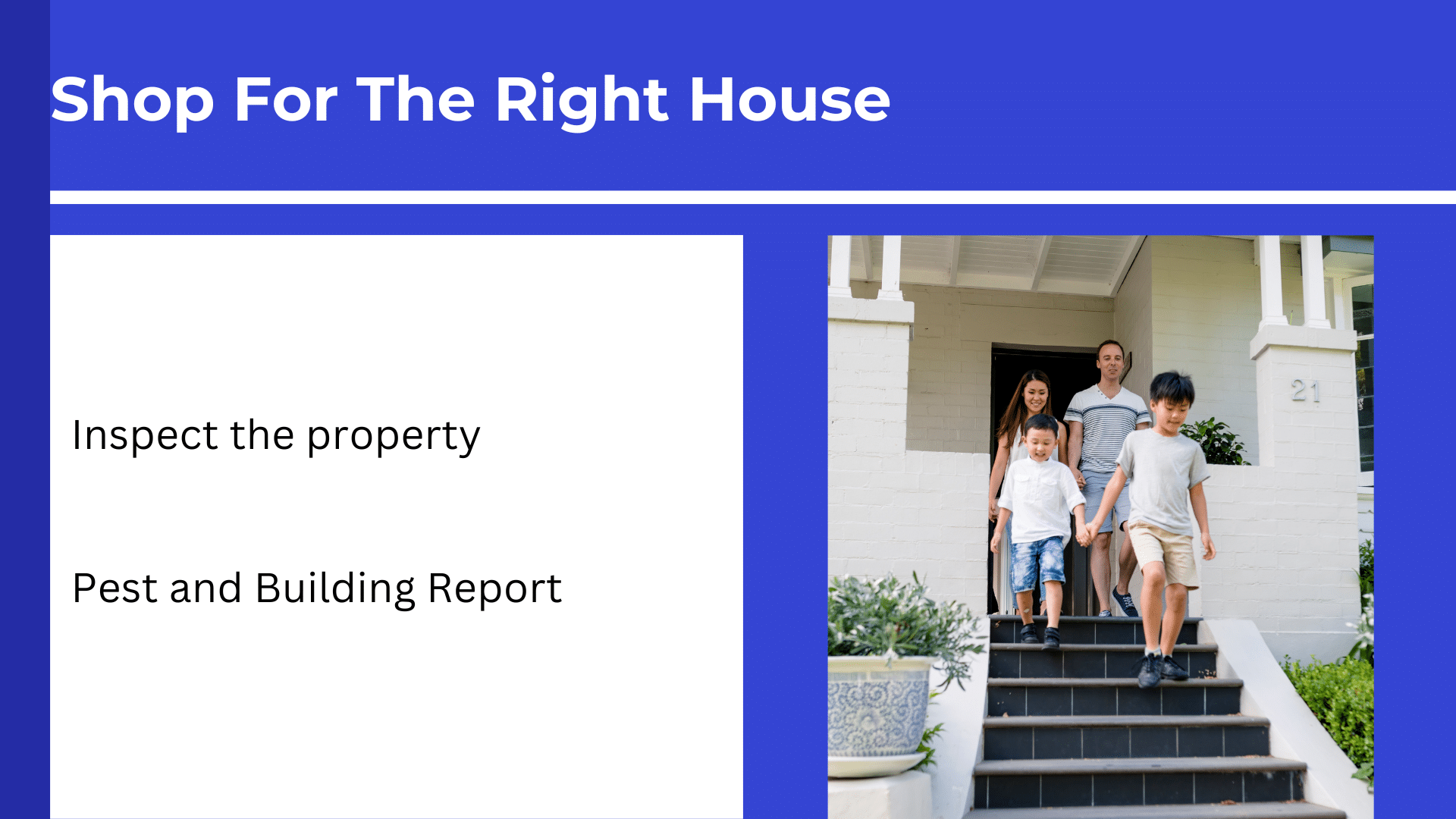Purchasing your first home is a big step to a brighter future. Whether you are looking to buy a place to live, or an investment, it can be a daunting and complicated experience when you’re first starting out. But don’t worry, because once armed with the expert tips tackled in this article, first home buyers like you will be prepared, confident, and ready to enter the property market.

Plan Early
Planning and learning a few things about the real estate market and the mortgage market is key to making an informed buying decision. With a purchase this large, you certainly need to know what you’re getting into and avoid any regrets down the road.
Research the Market
Understanding both the real estate market for the area you are interested in, growth trends and mortgage market conditions is critically important for first home buyers. Make sure you stay updated on the average property prices for homes or units in the suburb(s) you’re interested in, any local developments that could affect property prices, current interest rates and lending criteria. This will help in recognizing advantageous opportunities sooner than later, and ensure that if you find the perfect place, you’re in a position to get the finance required and secure the deal.
What’s the reason?
Clearly understanding the reason why you are buying will help you narrow your priorities and find the best property for you. If this is an investment, growth rates, tax-benefits (e.g depreciation) and occupancy levels matter far more than the colour of the brickwork. Whereas if this is your new home to live in, you should be focusing on the interior layout, renovations versus move-in ready, potentially schools and amenities in the area – things that directly improve your standard of living.
Think about your purpose and reason for buying, then write down your must-have features and requirements, versus your nice-to-haves BEFORE you start hunting.
Consider all aspects – from the suburb, to location in the street, the type of block & the actual situation of the house (does it get the sun in the morning, or the afternoon, or neither), the price, any potential issues packaged with it, including how quickly it can be turned over by the current owner. Talk to the managing real estate agent to understand the finer details of a particular property, beyond some nice pictures and the number of bedrooms. When it comes to finance, a good mortgage broker will give you insight into the lending market, including any roadblocks you may face in obtaining a mortgage, and amounts you are likely to be approved to borrow, which brings us to the next top tip…

Prepare Your Financial Situation
When purchasing your first home, just as important as the property itself, is your finances! Buying a house is not solely about the maximum you can afford to pay. In fact, borrowing your maximum amount is a great way to put yourself on the fast-train to Regrettsville after a couple of interest rate rises. While the bank already prices in some potential for interest rates to go up, you want to maintain a comfortable buffer rather than find yourself in a pinch to make your monthly repayments 1, 5, or even 10 years from now. The stress and pressure just isn’t worth it.
Save up for the deposit.
Start saving for the home deposit as soon as you can by saving a portion of your income. If you save 20% of the total house price that you have to pay upfront you can avoid paying for Lenders Mortgage Insurance (LMI) and the banks will generally treat you more favourably. You don’t have to stop there though, the more you save, the less you have to finance, and the lower your repayments! Now, there are grants available that allow exemption of LMI as long as you are eligible, but remember what we said about borrowing up to your maximum. It’s also good practice to set some money aside for extra costs like loan service fees, settlement and drawing fees, building and pest inspections, insurances, even a few mortgage repayments so you’re ahead from the very beginning.
There’s plenty of free resources online to create a budget and track your expenses, and it’s worth taking the time to set them up. Increasing your savings and cutting unnecessary expenses will help you to look good to the banks and lenders, increasing your chances of the mortgage being approved.
While we’re talking about the budget – take time to review your utilities like electricity, gas, insurance, internet and mobile phone bills. You’ll be surprised how much you can save by being willing to switch to a better deal with another provider.
Improve your credit score.
Before lenders will approve your home loan application, they will check your credit score to see if you pay your bills and generally behave yourself. You can increase your credit score over time by always paying your bills, rent, credit cards and loans on time, month after month. Set up direct-debit on any bills that allow it, so you don’t need to think about it and lessen the chance of forgetting to pay something before the due date. A lot of credit reporting agencies offer free access to your credit score, so you can keep track and ensure it is in top shape. Being declined for a home loan decreases your score too by the way, so make sure you’re ready before you apply.
If your score is not where it should be because of some past mistakes, consider seeking advice from a credit-repair service to see if there’s some quick wins you can do, like having an old judgement debt removed (once you’ve paid the debt of course.)
Stay within your borrowing capacity.
Let’s read that again – Stay within your borrowing capacity.
When buying your first home, it’s such an exciting time and all too easy to stretch yourself beyond your means and what will be comfortable to repay. Sure, it’s POSSIBLE to repay a certain amount, but will you be comfortable to pay that month after month, year after year? If not, reduce your budget a little bit for peace of mind.
You must have your finances thoroughly sorted out. You can do the calculations yourself, but a better option is to consult a mortgage broker to help you. You will want to know the maximum amount you can borrow based on your current financial standing, and what those repayments will look like. Ask what they’ll look like if interest rates rise a few percent too, so you can plan ahead, just in case. You can then reverse it, and ask how much you could borrow, based on how much you want to pay each month.
This will prevent you from incurring debt you can’t pay, and will make your house shopping much more enjoyable, with no nasty surprises!
Check available incentives for first home buyers.
You’re pretty special, did you know that? As a first home buyer, there are multiple grant schemes just for first home buyers that you could be eligible for. Understand the tax benefits too – buying a newer home may be more advantageous than an older home, for example.
Here’s a couple of schemes to check out and note that you can apply for more than one, if you are eligible:
First Home Buyer Assistance Scheme
Eligible first home buyers can pay less or even eliminate stamp duty fees depending on the value of the purchase, and applies to both new and existing properties, and land purchases.
Eligible first home buyers can purchase their property under this scheme with a deposit as little as 5% without having to pay the Lenders Mortgage Insurance (LMI). It’s like having LMI without paying the premium; saving between $7000 to $30,000+ and resulting in a faster home purchasing process.
Family Home Guarantee Scheme – Single Parents
Single parents with at least one dependent child can buy their home sooner with just 2% deposit, without paying the Lenders Mortgage Insurance, allowing for thousands of dollars in savings just like the above example.
The FHSS scheme allows you to use your super fund to save for your deposit and can provide additional tax benefits. Apply to use up to $15,000 of voluntary contributions per year, to a total of $50,000 across multiple years of saving. The ATO has more information about this one.
Regional First Home Buyer Guarantee Scheme
This government initiative supports first time home buyers to purchase a home in select regional areas with a 5% deposit but without paying the LMI.
If you’re struggling to meet the strict lending criteria for home loan approval, the bank may consider a Guarantor signing the loan with you. That’s someone who is capable of paying the loan in the event you’re unable to. It reduces the bank’s risk, but also means your Guarantor is legally liable for the loan if you don’t pay. Parents often consider going guarantor for their children, but it’s important that all parties understand their obligations if going down this path.
Search for the best interest rate & loan terms
A mortgage is a long term debt, so even the smallest difference in interest rate will save you a lot in the long run. We highly recommend comparing rates from multiple lenders. Take time to understand the differences between fixed rates versus variable rates work. Better yet, consult an experienced Mortgage Broker to help you save thousands of dollars over the life of the loan and ensure you find the perfect solution to suit your needs.
Get Pre-Approved for a Home Loan
We’re getting closer to the action now. Obtain a pre-approval from your target lender before you start actively searching for properties. This will help focus your budget with a clear dollar amount to stick to, and avoid the disappointment (and sometimes additional fees) that come with making an offer without the cash to back it up. It also shows the seller you’re serious about purchasing the unit or house they are selling because you have the money ready to go.

Shop For The Right House
Ready to find the perfect home to call your own? Start by searching online listings and filtering for location and budget ranges. Talk to real estate agents, attend a few open houses and auctions to see how it all works. Don’t forget the research you did in step 1 so you know the median price of units and houses within the location you want because it’s easy to forget the budget when emotions are running high.
Remember not to rush this stage – there’s a lot of properties out there.
Focus on ticking your list of must-have features first, before adding on the nice-to-haves while sticking to your budget. Limit the financial information you will share to the real estate agents like your maximum budget because they’re working for the seller, not for you. If you choose to engage a buyers agent, then do the opposite – they’re rooting for you and trying to get you the best home at the best price possible.
Visit The Property
Once you have found the house you want to buy, say online or via the real estate agency, it’s time to visit! Sometimes you visit during an Open House when anyone can walk in, other sellers will provide a private viewing just for you. Either way, it’s a must to get a feel of the house and of the neighbourhood, assess the layout, any possible renovations and make sure this is the property for you.
Building and Pest Inspection
You can see most of the house during your visit, but the stuff you can’t see is important too. What we’re referring to are things like a pest inspection (are there hungry little termites eating away at your investment?) or a building inspection to ensure structural integrity. You can arrange to have the house professionally assessed for any issues regarding possible structural, electrical, safety, termite or other pests and estimate the cost of repairs or maintenance necessary. Alternatively, find a building and pest inspector with a good rating via Google or a friend who has bought recently and be sure to check their reviews. You might not be familiar with all this, but the effort is worth it to find an inspector who is independent from the seller and their real estate agent. Do this for your peace of mind, and if any issues are identified, use those findings to negotiate the price, or walk away entirely before you purchase one big headache.

Make The Right Offer
Ok we’ve found our dream home… now it’s time to make an offer! Not just any offer, and certainly not the ‘sticker price’ just because that’s the price on the listing. This is where a little negotiation will go a long way.
As much as you’re excited and you really want to buy the place, don’t forget the seller also wants to sell it, so remain calm, and negotiate fairly, based on your research of similar properties in the area. Most sellers will negotiate too, because selling a house is almost as hard as buying one!
Negotiate With The Seller
If you are buying via an auction where you and other buyers are actively bidding, REMAIN CALM! Do not go overboard, don’t get into competition with someone else because it looks cool on tv. If you do, you’re guaranteed to pay too much. Do not let your fear of missing out set in. Just hold your horses and follow the budget you set before the auction started. Give yourself a top price, and if you get to that point without winning the auction – walk away.
If it’s through a private treaty, you’ve got the time to negotiate a reasonable yet affordable price with the seller and emotion is less likely to get the better of you. Take into account the median price you got from your research, plus the results of the building and pest inspections done on the property. Ask about the home’s history of repairs and renovations and anything else that you think will affect the value and the price you’re willing to pay. Be prepared to make counter offers. Go back and forth until you’re comfortable with the price.
Do Not Rush
Understand that this phase may take a while, before you and the seller come to a price acceptable to both of you. Maintain good communication and remain respectful with them, even if their offer seems a little cheeky. They want the best price for the sale, just as you want the best price for your purchase. But if the seller won’t agree to a reasonable price, consider walking away rather than overpaying. There are many, many other properties out there. You could even find the seller accepting your last offer rather than let the opportunity pass them by, but in order to find out, you have to be willing to risk walking away.
Work With Experienced Professionals
It is easy to feel overwhelmed with the complexity of buying your first home. There’s a lot of information to work through, but the good news is you don’t have to do it alone! That’s why we recommend engaging licensed experts who have proven experience in the first home buying process. They can provide guidance and advice to educate you and help ensure your first house purchase is smooth and successful. Take a buyers agent for example – he’s your version of the real estate agent for the seller. Their negotiating skills may help you strike a better offer, saving you money up front.
When it comes to finance, a mortgage broker will do all the comparisons between lenders for you, discuss what it takes to get approved, different loan types and why they are better suited to some people over others, and even provide you with loan options you wouldn’t otherwise be aware of.
That was a lot of information we went through there. But, we figured in giving you our Top 5 Tips for First Home Buyers in NSW, it was better to give you the real gold than some 30-second reading list that only skims the surface. We hope you learned something (or a few things) that will help you through the process and leave you feeling ready for action.
Lastly, if you’re in need of the best licensed brokerage to assist your first home buying journey, check out Wisebuy Home Loans – that’s us! We have an outstanding record helping first time home buyers secure finance without getting in over your head. We work for you, not the bank, to find the best loan at the most competitive interest rates in the market. With access to over 60 lenders you can be sure we know how to look after you the whole way through.












